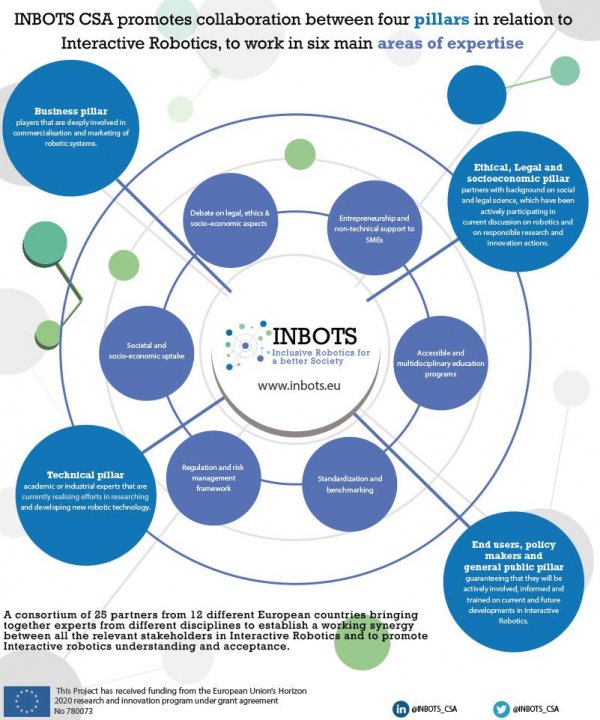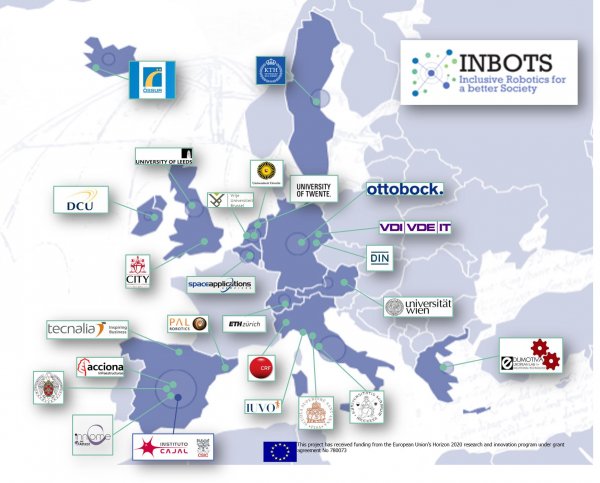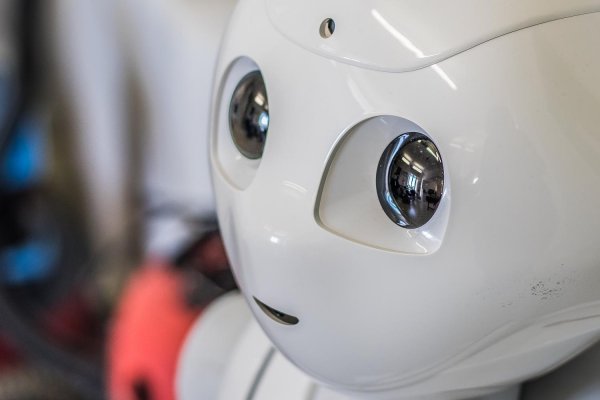Exhibitors 2019
- 3D PRINTING
- ART
- EDUCATION
- HOME AUTOMATION
- INTERNET OF THINGS
- KIDS & EDUCATION
- RECYCLING & UPCYCLING
- ROBOTICS
- SCIENCE
- YOUNG MAKERS (< 18)
- BIOLOGY
- GAMES
- ARTIFICIAL INTELLIGENCE
- OPEN SOURCE
- NEW MANUFACTURING
- FABRICATION
- WELLNESS & HEALTHCARE
- ENERGY & SUSTAINABILITY
- FOOD & AGRICULTURE
- 3D SCANNING
- CULTURAL HERITAGE
- AEROSPACE
- HACKS
- MUSIC & SOUND
- ARTISANS & NEW CRAFT
- FASHION & WEARABLES
- DRONES
- STEAM PUNK
- ARDUINO
- CROWDFUNDING
INBOTS Project
INBOTS (Inclusive Robotics for a Better Society) is a project bringing together experts from the different disciplines involved in the understanding and acceptance of Interactive Robotics in the society.
INBOTS fosters the collaboration between four pillars and six areas of expertise.
INBOTS Pillars:
-Business pillar – players that are deeply involved in commercialisation and marketing of robotic systems.
-Technical pillar – academic or industrial experts that are currently realising eff¬orts in researching and developing new robotic technology.
-Ethical, Legal and Socioeconomic pillar – partners with a background on social and legal science, which have been actively participating in current discussions about robotics and about responsible research and innovation actions.
-End Users, Policy Makers and General Public pillar – guaranteeing that they will be actively involved, informed and trained on current and future developments in Interactive Robotics.
INBOTS Areas of Expertise:
-Entrepreneurship and non-technical support to SMEs.
-Debate on legal, ethics & socio-economic aspects.
-Accessible and multidisciplinary education programs.
-Standardization and benchmarking.
-Regulation and risk management framework.
-Societal and socio-economic uptake.
INBOTS consortium is composed of 25 partners from 12 different European countries.
INBOTS brings together experts from different disciplines to establish a working synergy between all the relevant stakeholders in Interactive Robotics and to promote Interactive robotics understanding and acceptance.
INBOTS fosters the collaboration between four pillars and six areas of expertise.
INBOTS Pillars:
-Business pillar – players that are deeply involved in commercialisation and marketing of robotic systems.
-Technical pillar – academic or industrial experts that are currently realising eff¬orts in researching and developing new robotic technology.
-Ethical, Legal and Socioeconomic pillar – partners with a background on social and legal science, which have been actively participating in current discussions about robotics and about responsible research and innovation actions.
-End Users, Policy Makers and General Public pillar – guaranteeing that they will be actively involved, informed and trained on current and future developments in Interactive Robotics.
INBOTS Areas of Expertise:
-Entrepreneurship and non-technical support to SMEs.
-Debate on legal, ethics & socio-economic aspects.
-Accessible and multidisciplinary education programs.
-Standardization and benchmarking.
-Regulation and risk management framework.
-Societal and socio-economic uptake.
INBOTS consortium is composed of 25 partners from 12 different European countries.
INBOTS brings together experts from different disciplines to establish a working synergy between all the relevant stakeholders in Interactive Robotics and to promote Interactive robotics understanding and acceptance.
Italy
SIRSLab Group
Siena Robotics and Systems Lab is composed of about 15 people (faculties, researchers, PhD students) working on the theme of Human Centered Robotics. The scope of the group is designing new paradigms of human-robot integrations.
D10 (pav. 7)





















































































